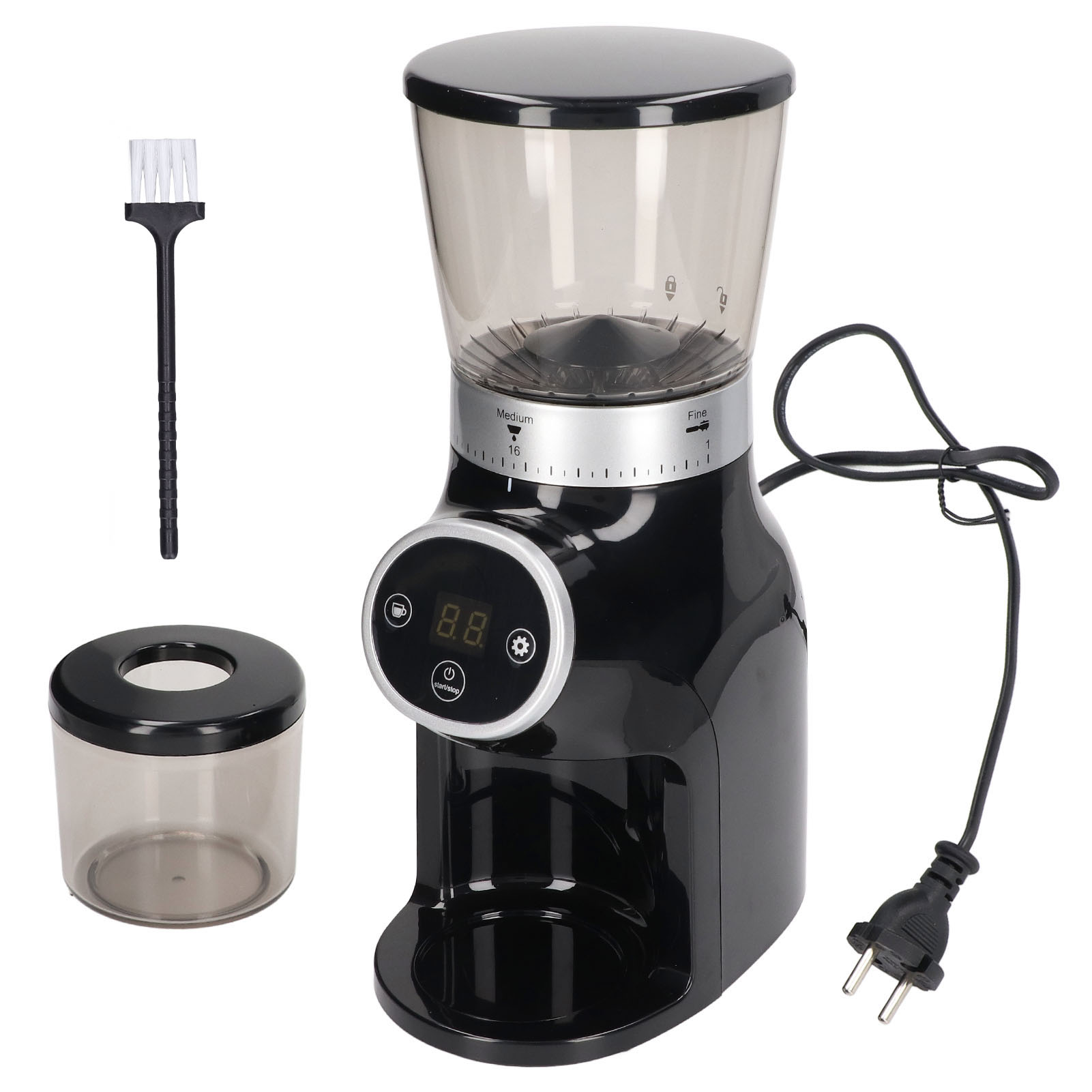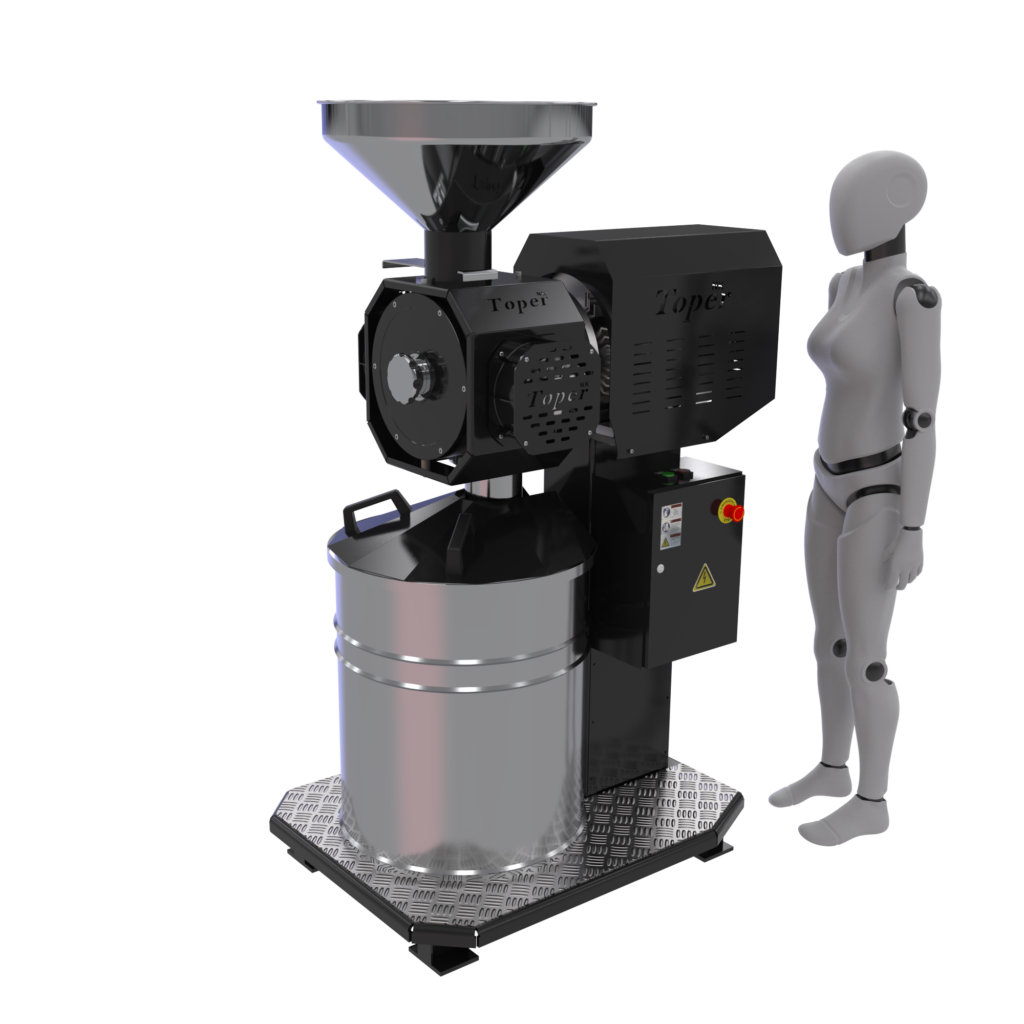How to Pick the Perfect Industrial Coffee Grinder for Your Business
Selecting the excellent industrial coffee grinder for your company is a diverse decision that requires mindful consideration of several vital variables. Additionally, understanding the various kinds of grinders offered can dramatically influence your operational efficiency.
Assess Your Grinding Requirements
When picking a commercial coffee mill, one have to initially assess their grinding demands to ensure optimal performance and consistency. This initial assessment involves recognizing the quantity of coffee to be refined daily, along with the wanted work dimension for numerous brewing methods. A high-capacity mill might be essential for organizations offering large quantities of coffee, while smaller procedures could locate a much more portable version enough.
In addition, it is necessary to consider the sorts of coffee beans being used, as different beans may require specific grinding strategies to accomplish the very best taste account. Oily beans might demand a mill developed to manage such features without clumping or overheating.
Another essential aspect is the required work consistency. Specialized coffee organizations often demand accurate work dimensions to improve extraction and taste, making it important to select a mill that can provide consistent results. Evaluating the available area and electric requirements will certainly aid in choosing a grinder that fits effortlessly right into your operational process. By thoroughly examining these elements, organizations can make educated choices that align with their coffee grinding needs, eventually causing a remarkable item and satisfied clients.
Understand Grinder Types
Understanding the various kinds of commercial coffee mills is critical for making an informed selection that satisfies details operational demands. There are primarily two classifications of grinders: blade grinders and burr grinders.
Blade grinders use spinning blades to slice the coffee beans, causing an irregular work dimension - Industrial Coffee Grinder. While they might be extra budget friendly, they are frequently not appropriate for industrial applications where precision is important
On the other hand, burr mills give an extra consistent work by crushing the beans between 2 surface areas. They can be additional categorized right into flat burr and cone-shaped burr grinders. Apartment burr mills use a constant grind size and are normally favored for coffee preparation, while cone-shaped burr grinders are functional and can handle a series of mixture approaches, from coffee to French press.
When choosing a mill, take into consideration the specific demands of your business, including preferred grind uniformity, manufacturing volume, and the types of coffee drinks you intend to use - Industrial Coffee Grinder. Each grinder kind has its advantages and limitations, so understanding these subtleties enables notified decision-making that aligns with operational objectives
Evaluate Grind Dimension Uniformity
Achieving work size uniformity is essential for producing premium coffee, as variants in fragment dimension can substantially impact removal and flavor. When selecting an industrial coffee grinder, it is crucial to evaluate how well the equipment preserves uniformity go to this website in work size across various sets. Inconsistent grind sizes can result in irregular extraction, causing a cup that might taste weak or extremely bitter.
To examine grind dimension uniformity, think about grinders with features such as adjustable work settings and high-quality burrs. Burr mills, specifically, excel in producing consistent fragment dimensions compared to blade mills. The material and shape of the burrs play an important role, with stainless steel and ceramic choices offering longevity and precision.

Think About Manufacturing Capacity
In the fast-paced world of coffee manufacturing, thinking about production capacity is critical for companies aiming to fulfill need without sacrificing quality. The manufacturing ability of an industrial coffee grinder directly affects a company's capacity to accomplish orders efficiently, handle stock, and reply to changing market fads.
When evaluating manufacturing capability, it is important to evaluate the mill's output rate, commonly gauged in pounds per hour. This dimension must straighten with your company's projected sales quantity and development targets. A coffee shop with a high turn over might require a grinder that can refine a number of hundred pounds daily, while a smaller sized procedure may be adequate with a reduced see this website ability version.
Furthermore, take into consideration the sort of coffee being processed. Various beans and blends may affect grinding speed and effectiveness, demanding a grinder efficient in managing diverse manufacturing requirements. It's also worth considering the mill's ability to preserve regular top quality under high outcome problems, as any type of variations can affect the final item.
Ultimately, picking a grinder that matches your organization's production capacity will certainly guarantee you remain competitive and receptive to customer expectations.

Budget Plan and Upkeep Variables
When examining the ideal commercial coffee budget plan, mill and upkeep factors play a substantial duty in the overall decision-making process. A preliminary investment in a top quality grinder can generate lasting benefits, but it's important to develop a clear spending plan that lines up with your organization's operational needs. Take into consideration both the acquisition cost and potential operational prices, such as power consumption and replacement components.
Industrial coffee grinders call for regular maintenance to ensure optimum performance and longevity. Evaluate the supplier's referrals for upkeep, consisting of cleaning schedules and components replacement, as these will certainly affect long-lasting operational costs.

Purchasing a grinder that is long lasting yet easy to keep can conserve money over time. While lower-priced choices might be tempting, they might incur higher upkeep prices and lowered performance. Eventually, balancing initial costs with long-term upkeep and functional performance will direct you to anonymous the finest choice for your company's coffee grinding needs.
Final Thought
Selecting the ideal industrial coffee mill demands a thorough analysis of grinding demands, grinder kinds, grind dimension consistency, production ability, and budgetary considerations. A well-chosen grinder not just improves the high quality of the coffee produced yet likewise contributes to the general success and productivity of the venture.
Specialty coffee companies usually demand exact work sizes to improve removal and flavor, making it essential to choose a mill that can deliver uniform outcomes. Apartment burr mills use a regular work dimension and are generally favored for espresso preparation, while cone-shaped burr grinders are functional and can handle a range of mixture techniques, from coffee to French press.
When picking a commercial coffee grinder, it is critical to review how well the machine preserves uniformity in grind dimension throughout various batches. Burr mills, in certain, succeed in creating consistent bit dimensions contrasted to blade grinders.Picking the optimal commercial coffee grinder requires a complete examination of grinding needs, grinder kinds, grind dimension consistency, production capacity, and financial factors to consider.